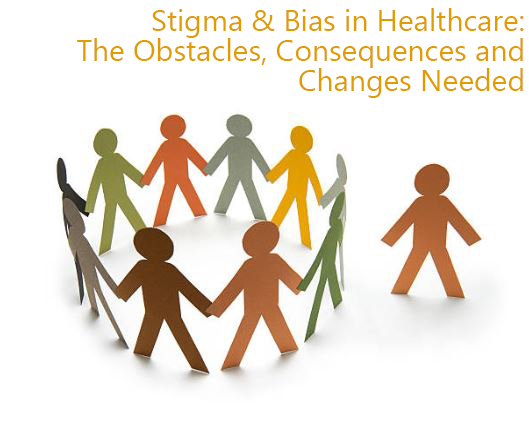High Costs And Stigma: Barriers To Mental Healthcare Access

Table of Contents
The Crushing Weight of Cost: Financial Barriers to Mental Healthcare Access
The financial burden of mental healthcare is a significant obstacle for many. The cost of treatment, including therapy, medication, and hospitalization, can be prohibitively expensive, creating a significant barrier to mental healthcare access.
High Treatment Costs
The escalating costs of mental healthcare are alarming. Therapy sessions, often priced at upwards of $100-$300 per session, quickly become unaffordable, particularly with the need for multiple sessions per week. Psychiatric medications, while essential for many, can also be expensive, with some requiring substantial ongoing costs. Furthermore, inpatient treatment and extended hospital stays for severe mental health conditions can rack up tens of thousands of dollars in bills, creating insurmountable debt for many families. The lack of affordable insurance coverage for mental health services in many regions exacerbates this problem.
- High cost of therapy sessions: $100-$300+ per session, often requiring multiple weekly sessions. Annual costs can easily reach tens of thousands of dollars.
- Expensive psychiatric medications & their side effects: Ongoing medication costs can be substantial, and side effects can necessitate further medical intervention, adding to the expense.
- Cost of inpatient treatment & extended stays: Inpatient care can cost thousands of dollars per day, creating a massive financial burden for patients and their families.
- Limited financial assistance programs and their shortcomings: Existing programs often have strict eligibility requirements or limited funding, leaving many individuals without adequate support.
The Impact of Underinsurance and Lack of Coverage
Inadequate insurance coverage is a major factor limiting mental healthcare access. High deductibles and co-pays mean that even with insurance, individuals face significant out-of-pocket expenses. This often forces them to forgo necessary treatment or delay seeking help until their condition worsens. The impact is disproportionately felt by low-income individuals and families who may lack the financial resources to cover even a small portion of the cost.
- High deductibles exceeding a patient's annual income: Many plans require substantial out-of-pocket payments before coverage kicks in, rendering them effectively useless for those with limited incomes.
- Gaps in insurance coverage for specific treatments: Insurance plans may not cover all types of therapy or medications, forcing patients to choose between less effective treatments or foregoing treatment altogether.
- Limited network providers accepted by insurance: Restricting patients to a limited number of in-network providers can make finding accessible and convenient care difficult.
- Inability to afford medication despite insurance: Even with insurance, the cost of medication can still be prohibitive for some individuals, especially those taking multiple medications.
The Lingering Shadow of Stigma: Social Barriers to Mental Healthcare Access
Beyond the financial barriers, the stigma surrounding mental illness significantly impacts mental healthcare access. Negative societal attitudes and misconceptions create a culture of silence and shame, preventing many individuals from seeking help.
Societal Attitudes and Misconceptions
Negative societal attitudes towards mental illness contribute to reluctance to seek help. Common misconceptions and myths often portray individuals with mental health conditions as unpredictable, dangerous, or weak. This fuels fear of judgment and discrimination, further hindering help-seeking behavior.
- Fear of being labeled "crazy" or "weak": This fear prevents many from disclosing their struggles and seeking professional help.
- Societal pressure to "tough it out" without seeking professional help: A societal emphasis on self-reliance can lead to individuals suffering in silence.
- Discrimination in employment, housing, and social settings: The fear of losing a job or facing social isolation can prevent people from disclosing their mental health conditions.
- Lack of understanding from friends, family, and colleagues: A lack of empathy and support from those closest to them can further isolate individuals and deter them from seeking treatment.
The Impact of Stigma on Help-Seeking Behavior
Stigma significantly delays or prevents individuals from seeking professional help. The fear of judgment and discrimination can lead to a delay in seeking care, resulting in worsened symptoms and a more difficult path to recovery. Stigma can also impact treatment adherence, leading to relapse and hindering long-term recovery. Ultimately, it can lead to isolation and worsen mental health conditions.
- Delay in seeking professional care, leading to worsened symptoms: The longer treatment is delayed, the more severe the condition can become.
- Reluctance to disclose mental health conditions to employers or friends/family: This isolation can exacerbate feelings of shame and loneliness.
- Increased shame and self-blame contributing to treatment resistance: Stigma can make individuals feel responsible for their condition, making them less likely to seek help.
- Difficulty building trusting relationships with healthcare providers: Fear of judgment can make it challenging to open up to healthcare professionals and engage effectively in treatment.
Conclusion
High costs and persistent stigma represent significant barriers to accessing vital mental healthcare. These challenges disproportionately affect vulnerable populations, hindering recovery and overall well-being. Addressing these issues requires a multi-pronged approach, including advocating for affordable mental healthcare policies, expanding insurance coverage, and challenging societal misconceptions surrounding mental illness. Let’s work together to improve mental healthcare access for everyone and break down these barriers to better mental health for all. We must strive for equitable access to affordable and stigma-free mental healthcare services.

Featured Posts
-
 Vuelta Ciclista A Murcia Christen Se Impone En La Edicion 2024 Adaptar El Ano
May 03, 2025
Vuelta Ciclista A Murcia Christen Se Impone En La Edicion 2024 Adaptar El Ano
May 03, 2025 -
 A Practical Guide To This Country What You Need To Know
May 03, 2025
A Practical Guide To This Country What You Need To Know
May 03, 2025 -
 Ca Vient Du Ventre L Accrochage Entre Macron Et Sardou Devoile
May 03, 2025
Ca Vient Du Ventre L Accrochage Entre Macron Et Sardou Devoile
May 03, 2025 -
 Join Sonys New Play Station Beta Program Everything You Need To Know
May 03, 2025
Join Sonys New Play Station Beta Program Everything You Need To Know
May 03, 2025 -
 The Prisoner Of Azkaban Why A New Director Took The Helm
May 03, 2025
The Prisoner Of Azkaban Why A New Director Took The Helm
May 03, 2025
Latest Posts
-
 Images Inedites L Emotion D Emmanuel Macron Apres Une Rencontre Avec Des Victimes En Israel
May 04, 2025
Images Inedites L Emotion D Emmanuel Macron Apres Une Rencontre Avec Des Victimes En Israel
May 04, 2025 -
 La Douleur Des Victimes Israeliennes Emmanuel Macron Temoigne D Une Profonde Emotion
May 04, 2025
La Douleur Des Victimes Israeliennes Emmanuel Macron Temoigne D Une Profonde Emotion
May 04, 2025 -
 Reaction Emue D Emmanuel Macron Rencontre Poignante Avec Des Victimes De L Armee Israelienne
May 04, 2025
Reaction Emue D Emmanuel Macron Rencontre Poignante Avec Des Victimes De L Armee Israelienne
May 04, 2025 -
 Netanyahu Juge La Politique Palestinienne De Macron Dangereuse
May 04, 2025
Netanyahu Juge La Politique Palestinienne De Macron Dangereuse
May 04, 2025 -
 Emmanuel Macron Face A La Douleur Images Rares D Une Rencontre Emouvante Avec Des Victimes Israeliennes
May 04, 2025
Emmanuel Macron Face A La Douleur Images Rares D Une Rencontre Emouvante Avec Des Victimes Israeliennes
May 04, 2025
